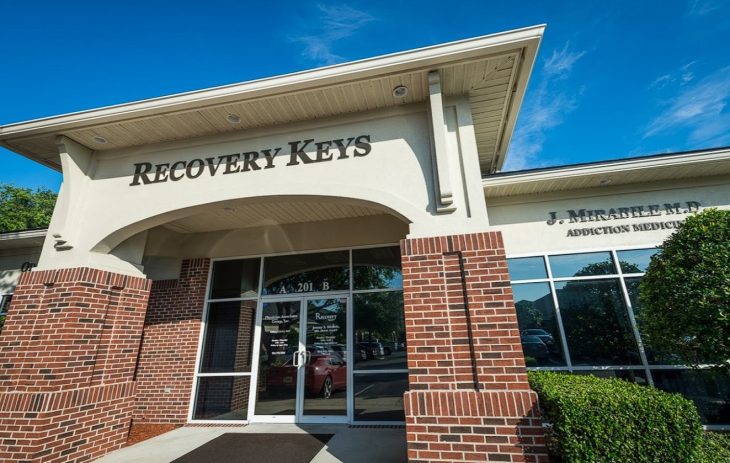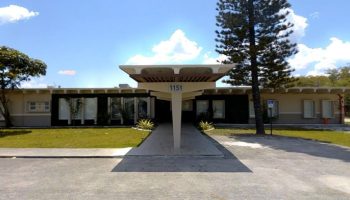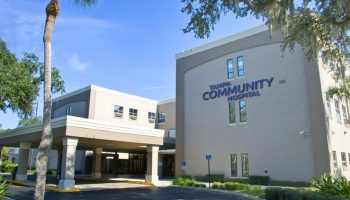About Recovery Keys Jacksonville
Recovery Keys in Jacksonville, Florida offered outpatient treatment of substance use disorder and coexisting mental health issues. The facility was well equipped to meet the client’s needs by providing partial hospitalization programs (PHPs) and intensive outpatient program (IOP) treatment. The center treated the whole person by integrating standard empirically supported treatments with approaches such as fitness and hypnotherapy to address complex needs of the individuals with addiction.
Some of techniques the that patients experienced from the various therapies were cognitive behavioral therapy, dialectical behavior therapy, and motivational interviewing. Recovery Keys also used such methods as biofeedback and aromatherapy to help patients relax and regain their emotional equilibrium. There was a special attention to the family system of the patients.
After treatment clients got aftercare support with the necessary encouragement to maintain long term sobriety. The program helped you find 12 step programs in your area, set up crisis steps if relapse is likely, and finding you ongoing therapy.
Room for Growth
Previous clients highlighted the professionalism and commitment of the staff to be compassionate throughout the treatment process. Patients reported a warm and welcome environment and that the treatment given to each patient is not standardized as in many other facilities.
However some former patients had concerns about administrative decisions and policies. There were complaints about lack of food or drink during longer meetings and the rigidity of the medication management at some points. These suggest the potential for the center to develop further and improve existing practices.
With the various forms of therapy that were integrated together at the facility, Recovery Keys equipped patients with a strong and stable foundation towards a healthier life. Although there were some areas of concern, most clients were happy and enjoyed their experiences.
Levels of Care
-
PHP
Partial hospitalization programs provide comprehensive treatment in a structured setting during the day but allow you to return home at night. These programs offer a balance of inpatient and outpatient rehab and provide intensive support without full time residency.
-
Outpatient
In outpatient therapy, you’ll attend therapy sessions several times each week while living at home. This is ideal if you have a strong support system and a lower risk of relapse. Outpatient treatment offers flexibility to maintain work, school or family obligations.
-
Aftercare
Aftercare programs provide ongoing support after you complete a rehab program. They may include several components to help you maintain sobriety including therapy, community support groups and relapse prevention strategies. This gives you a network of resources as you reintegrate into your daily life.
-
Dual Diagnosis
Dual diagnosis programs address substance use disorders and co-occurring mental health conditions simultaneously. This integrated approach to care improves the likelihood of long term recovery and stability by addressing the root causes of addiction.
Detox Service Setting
-
Outpatient Detox
Outpatient detox gives you access to medically supervised withdrawal services while still allowing you to live at home. You’ll attend a clinic for treatment and monitoring. This flexible option is suitable for those with mild to moderate withdrawal symptoms who have strong support systems.
-
MAT
Medication assisted treatment combines medication and counseling to manage withdrawal and reduce cravings for opioid and alcohol addiction. Medications may include methadone, buprenorphine or naltrexone. MAT is tailored to your needs so you can actively participate in your treatment journey.
Programs
-
Adult (18+)
Adult programs address the substance use and life challenges specific to adults. Therapists can deliver sessions in individual, group and family settings. Services often include job support and life skills training in a structured environment.
-
Alcohol Detox
Alcohol detox programs offer medical support to help individuals withdraw safely from alcohol. Your care team may use medications to ease your symptoms and provide medical monitoring to address complications.
-
Cognitive Behavioral Therapy
Cognitive behavioral therapy focuses on changing harmful thought patterns and behaviors associated with addiction. You’ll learn healthier coping mechanisms by identifying and replacing negative thoughts. This improves your emotional resilience and decreases your relapse potential.
-
Exercise Therapy
Exercise therapy incorporates physical activity into treatment to promote mental and physical health. Regular exercise reduces stress, boosts mood and enhances your overall wellbeing. This can give you a positive outlook and lower your relapse risk.
-
LGBTQ Friendly
LGBTQ friendly programs create an inclusive and affirming space for recovery. Treatment is sensitive to issues like discrimination and stigma. You’ll receive support and therapy that respects and acknowledges your unique experiences.
-
Men
Men's programs address substance use while also considering the social pressures, family roles and mental health concerns that are specific to men. You’ll learn healthy coping mechanisms as you build emotional resilience and develop communication skills.
-
Opioid Detox
Opioid detox uses medications to ease severe withdrawal symptoms. It also includes medical supervision to help you manage potential complications. These services allow you to stabilize and begin a recovery plan.
-
Seniors (65+)
Senior programs address the unique needs of older adults like chronic pain, grief and isolation. Programs include peer support and medical oversight for age related health concerns. The goal is to improve quality of life and promote sober aging.
-
Women
Women's programs offer a safe and supportive space to focus on gender specific issues such as trauma, family roles and mental health conditions. Therapists tailor the sessions to address women's needs and foster empowerment in a healing and nurturing environment.
-
Young Adult (18 - 25)
Young adult programs are designed for individuals who are transitioning into adulthood. Topics of discussion typically include identity, independence and peer relationships. Providers may also offer life skills training and career support.
Payment Options
- EAP
- Private Insurance
- Self Pay
Accreditations
-
 Joint Commission
Joint Commission
Amenities
- Music Room
Contact
6100 Greenland Road Suite 201
Jacksonville, FL 32258





